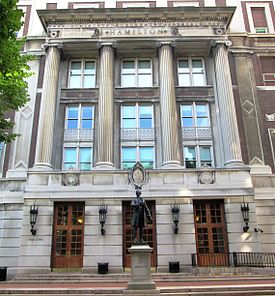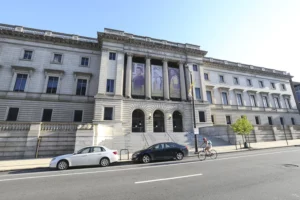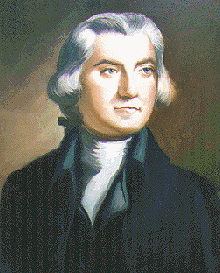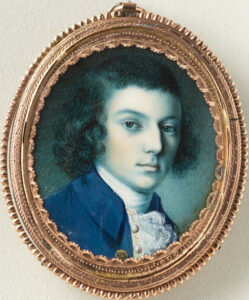Americanism Redux
January 19, 250 years ago today, in 1773
Teaching and education. My life. I teach young people how to think. I teach adults how to worship. God made me to live this life.
I’ve met a person, a parent, actually a step-father for whom I’ve developed great respect. The step-father respects me, too, I think. Yes, I’m certain he does. That’s not bragging. It’s a mutually supportive relationship between teacher (me) and a young man’s step-father (him.) Each of us values it.
I owe it to the step-father to speak the truth. He wants to know where his step-son, whom I’ve taught, should go to college. I’m honored at the request. I will be careful, thoughtful, honest in my letter to him.
Typical of the step-father, his is a layered question. He is curious about my view as to the community where the institution is located. Will it supplement education with other activities? Will it provide enrichment? Will it have social connections that can help propel a student into the next stage of life? The step-father is wise to ask such things.
The step-father and I agree—the institution closest to his home should be the choice but, sadly, the place has declined in quality. Shameful. The College of William & Mary isn’t what it used to be. Got to look elsewhere.
(The College of William & Mary)
It boils down to two places and institutions for most people who ask this question. It’s either New York City and King’s College (Columbia University) or Philadelphia and the College of Philadelphia (University of Pennsylvania).
(King’s College in New York City) (College of Philadelphia)
The choice is clear to me. It’s NYC and King’s College. Everything’s there—good education, lots of city activities, exciting environment, great social and political networks to plug into. Colonial government is there, the British military is there, financial lenders are there, innovative businesses are there, trans-Atlantic, European, Caribbean, Central American, and African connections. Amazing. The step-father’s step-son will stand “a better Chance for acquiring that Liberality of Manners, which is one of the best uses of Travel, by mixing occasionally with truly well-bred People.” A life-shaping experience.
More about that education, though.
King’s College doesn’t make the mistake that most colleges make in America. By that I mean KC teaches each student to be a scholar. It’s the institution’s direct goal. At other places if such an outcome happens, it’s an accident. Worse yet, most American colleges teach a little about everything, “a smattering” that serves no purpose or coherence. It makes silly graduates out of superficial students. William & Mary used to be like KC as well, but no longer and…that’s another story for another day.
I’ll be sure to inform the step-father that I do have a conflict of interest with KC. They gave me an honorary masters of arts degree and also I’m friends with the president. Nothing to hide. With everything on the table, I stand by my choice. KC and NYC it should be for all the reasons I’ve described.
I hope I’m able to go with the step-father and step-son to see King’s College again. It would be a worthy trip in no small part because I need an eye doctor and they tell me that an excellent one resides in New York City.
Also
(Jonathan Boucher) (John Parke Custis Washington)
The writer of the letter, dated 250 years ago today, is Reverend Dr. Jonathan Boucher of the St. Anne’s Anglican Church in Annapolis, Maryland. The letter’s recipient is George Washington, a fellow Anglican and well-regarded social acquaintance. Their relationship has deepened into a friendship by today, 250 years ago. Boucher’s letter consists of precisely the ideas, opinions, and recommendations above, sorted out in his head as he composes the letter. Washington’s step-son is John Parke Custis Washington, age 19, born in the year his then-future step-father and a Native warrior unleash an irregular surprise attack on unsuspecting French soldiers in western Pennsylvania. Five years later, Martha Custis became Martha Custis Washington, wife of the Colonel.
Notice what’s not in these words of advice. Nothing about politics or policies or crises or controversies. No pro-colonial rights and no pro-imperial rights.
Until this…
…slipped into the end of a quite long letter, right before the best wishes from Mrs. Boucher to Mrs. Washington:
“A very disagreeable Controversy with two of our patriot Lawyers, which I was too easily persuaded to enter into, seems likely to cut me out (of) a good deal of Work: This, however, if other Matters can be got over, is certainly not of moment enough to detain me.”
Boucher and two lawyers, William Paca and Samuel Chase, spit fire at each other in the newspapers. The issue is colonial Maryland’s new policy of a tobacco tax for clergymen’s salaries. Paca and Chase despise anything that helps the Anglican Church, while Boucher disdains anyone who opposes the Anglican Church. The dispute immediately descends into the controversy over pro-colonial versus pro-imperial. It is an ink-splattering brawl, fight, and head-bashing in the newspaper arena. A cage match made in heaven.
For You Now
A parent in a blended home wants the best for an older child at the doorstep of adulthood. The parent knows an expert, someone who has actually taught the step-child in the blended family’s home. So, based on actual practice and actual mastery of work, the parent seeks, and receives, advice from the expert. It’s a major life decision for the family who is trusting its expert-friend.
The relationship between Boucher and Washington is strong in itself yet precarious beyond itself. If the world turns a particular way—if the River Bends sharp and with a sudden change in breadth and depth and current—the two men could be staring at each other across raging waters, soaked and clinging to icy boulders of choices, decisions, and consequences. The Anglican Church is a British church of authority, ritual, tradition, and strictures. A king created it two-and-a-half centuries ago. If the Bend comes and the clouds bring rain.
Boucher’s words “if other things can be got over” are ominous. How will that happen? In the event of getting-over, who will be emboldened and uplifted and who will be cast down and disheartened? How will the River run? Who will be pulled under?
A college for enrollment. A city for residency. A new step in order to take a next step. And the family’s contentment.
250 years later, the questions and the answers have a familiar look. And yet so does the mystery and unknown, the misfortunes and misadventures.
Suggestion
The “other things that can be got over” between now and…when? Consider how far forward the things you already know can extend. Consider then the events that might cause you to know a new path will be needed.
(Your River at eye-level)














